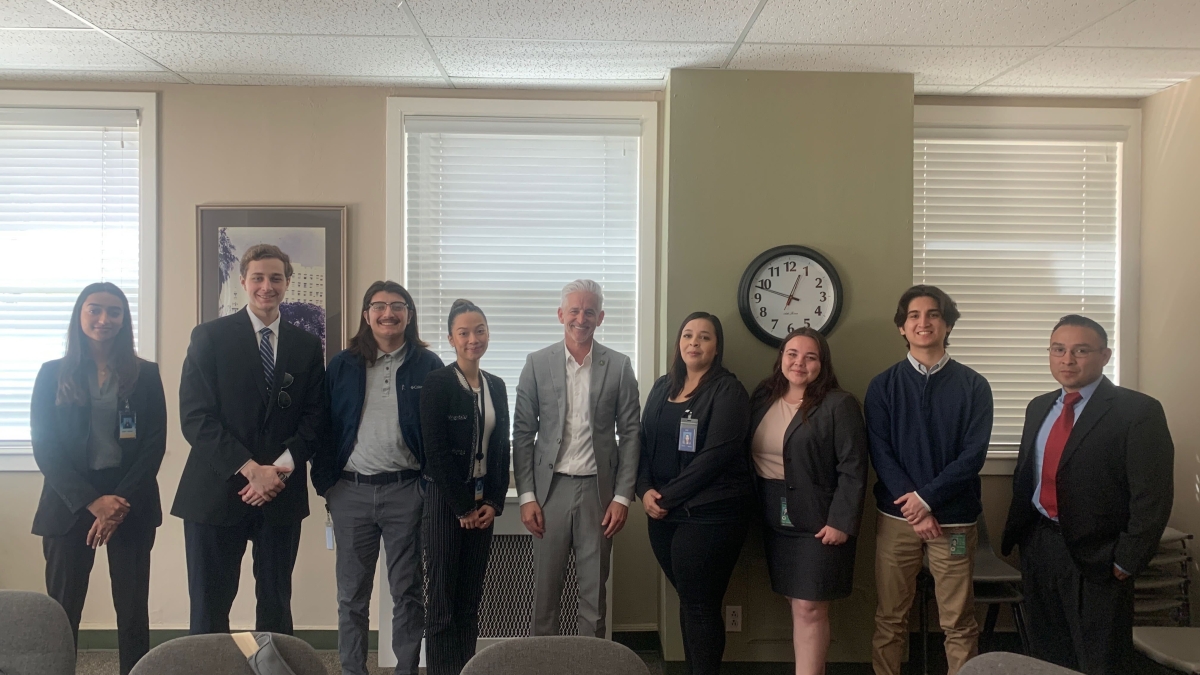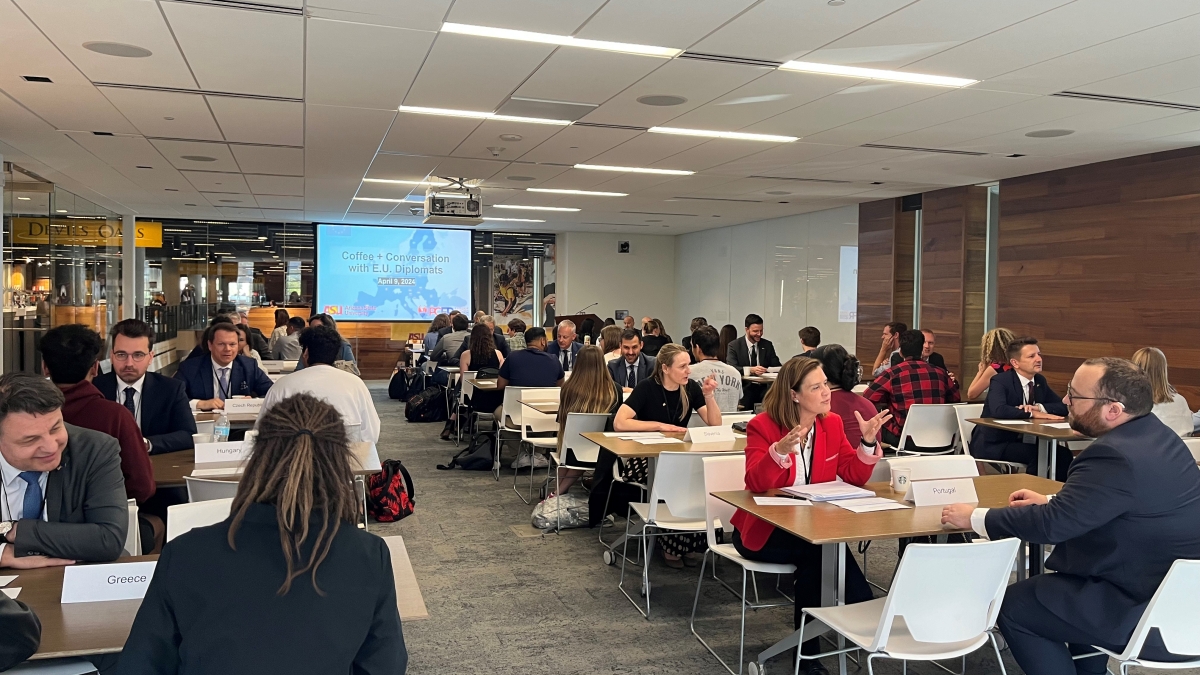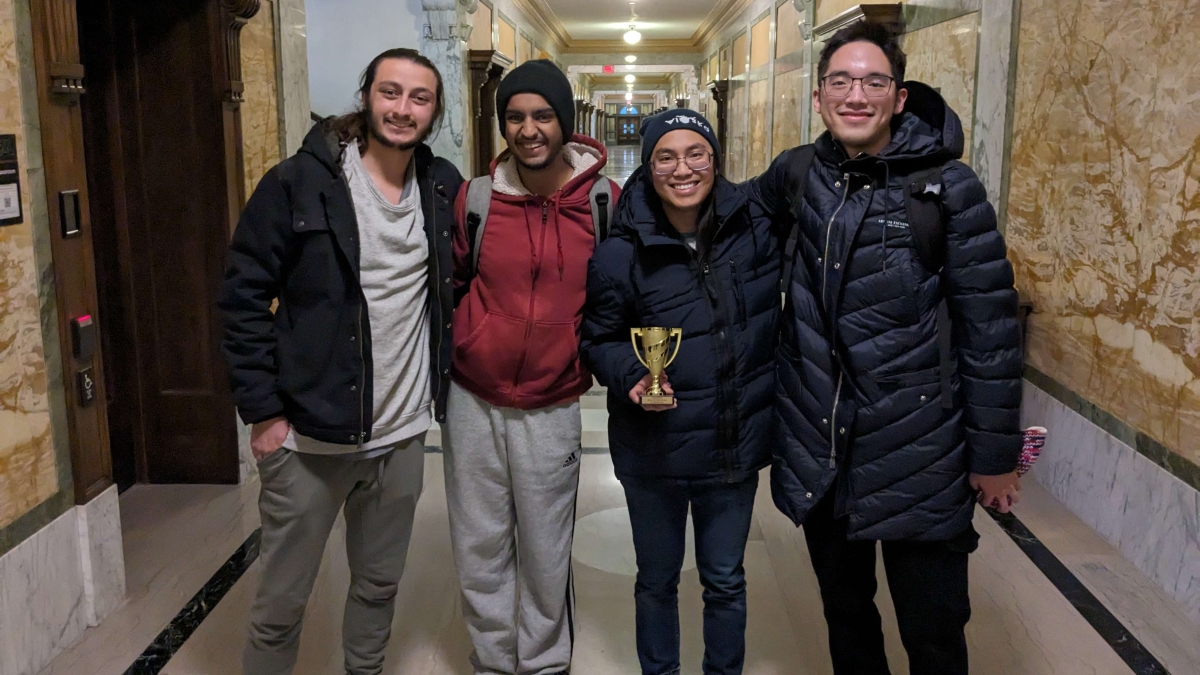ASU professors say military is off when reporting civilian deaths

Update: Since this story was originally published, Azmat Khan and Anand Gopal have won two journalism awards for their story, "The Uncounted": the 2018 Ellie National Magazine Award for best reporting and the Overseas Press Club of America's 2018 Ed Cunningham Award for best magazine reporting in print or digital on an international story.
The American-led coalition fighting the Islamic State has killed tens of thousands of ISIS fighters since August 2014, but the military is off when it comes to reporting civilian deaths, say two ASU professors who spent 18 months investigating the issue for an in-depth report for The New York Times Magazine.
In their report, “The Uncounted,” Azmat KhanAzmat Khan is an ASU Future of War Fellow at New America in Washington, D.C. and Anand GopalAnand Gopal is an assistant research professor with ASU's Center for the Study of Religion and Conflict and the Center on the Future of War. , both professors with ASU’s Center on the Future of War, write that the military consistently fails to investigate claims properly, keeps poor records, relies on flawed or outdated intelligence and conflates civilian and combatant deaths. Among their claims: “This may be the least transparent war in recent American history.”
Azmat Khan
Question: In “The Uncounted,” you write of Basim Razzo, a Mosul, Iraq resident whose home was bombed in a drone strike by the U.S. military on Sept. 20, 2015. Why did you highlight his story
Azmat Khan: Though we met so many compelling survivors, Basim was the main character in our story for several reasons. The first is that the particular circumstances of his case met some of the highest coalition standards for an airstrike. By that, I mean that his was a so-called deliberate airstrike, which can be planned over weeks or months, and there is more time for the coalition to consider and vet the target before it is carried out. The overwhelming majority of coalition strikes — 85 percent — are not deliberately planned strikes, meaning they are planned sometimes over minutes or hours based on some urgent need. Additionally, the coalition had classified this target as an “ISIS headquarters” — which we learned often had to meet the highest thresholds of intelligence and civilian casualty mitigation efforts compared to other targets. So essentially, we chose a case that represented the “best case” scenario — some of the best vetting, planning and intelligence.
The second is Basim as a character. He’s so compelling, so resilient. Having lived in both the U.S. and Iraq, he can provide insight into both worlds, and American readers will understand that. He also spoke fluent English, and compared with many of the other civilian survivors we met, he had networks and contacts that made it possible for him to reach out to the coalition himself. Few Iraqis can do that. Not to mention he had compiled such a degree of evidence, and the video of the strike had been put online. So if even he was unable to clear his name on his own, it gives the reader insight into how difficult it would be for an Iraqi who doesn’t have those connections or language skills.
Q: You state in the article that this is the “least transparent war in recent history.” Why is that?
Anand Gopal: Wars always suffer from a lack of transparency. Every government and every military is opposed to transparency; the extent that their activities are transparent is a function of the activity of third parties — watchdogs, journalists and, most important, social movements. Unlike the previous Iraq war (2003–2011), there has been little media interest in this conflict, and almost no anti-war movement. Partly this may be due to the fact that the enemy is ISIS, which many feel is a group so beyond the pale as to not justify the usual humanitarian concerns in war. And partly this may be due to the fact that there are few boots on the ground, and fewer Americans feel connected to this conflict than any other in recent times.
Q: You wrote that the military is purposely reporting low numbers on civilian casualties, and that the total is likely 31 times as high as reported. What’s the likely motivation?
Anand Gopal: Since the anti-war movement associated with Vietnam, there has been a norm in this country against killing civilians unnecessarily. The United States portrays its military actions abroad as just and humanitarian; to bolster this perception, there is a strong tendency [for the military] to undercount civilian casualties. More generally, militaries are not normally in the job of tracking how many civilians they kill — this is usually done by journalists, watchdogs and social movements.
Anand Gopal
Q: Your investigation revealed that in many of the airstrikes resulting in civilian death, there were no discernible ISIS targets nearby. What do you think is the cause for that?
Azmat Khan: These were likely the misidentification of a civilian target due to either poor or outdated intelligence, which is what happened in Basim’s case. So for example, in one case we knew that an ISIS fighter had left an area about half an hour before the airstrike hit. Half of the civilian death incidents we found were likely the result of such poor or outdated intelligence.
More Local, national and global affairs

ASU Sacramento Scholars learn about government through hands-on experience
Brian Lizarraga of Sacramento, California, is in his first year as an undergraduate at Arizona State University. Being an out-of-state student, he didn’t have to leave his hometown, the state…

EU delegation visits ASU with an eye toward collaboration on semiconductors
Arizona State University has attracted nationwide attention for its innovation related to the CHIPS and Science Act of 2022. Now the world at large is taking notice. On April 9, approximately two…

ASU breaks into ACF Nationals
Written by Victor Johnson For the first time in ASU Quiz Bowl history, the team has qualified for a spot at the ACF Nationals, the premier collegiate quiz bowl national championship, which will be…

